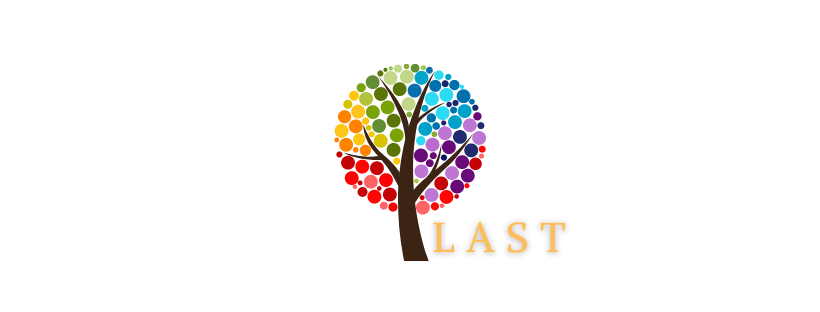
by Jamie Azar, Certified Relationship and Intimacy Coach
Heteronormative society both romanticizes lifelong commitments and everlasting love, while simultaneously demonizing and stigmatizing singlehood, separation, and divorce. However, the intentional and conscious uncoupling, or the decision to leave a relationship that no longer serves us, can be one of the healthiest choices—for both the relationship and ourselves—especially if that relationship is rooted in disharmony, disrepair, or dysfunction.
What happens when a relationship’s homeostasis gets trapped in a cycle of dysfunction? When disconnection becomes the norm and neither person is willing to commit to repair, accountability, or change?
The symbiosis of the relationship begins to unravel, and all too often, we end up living out the wounds of our early attachment patterns, many of which are rooted in childhood or early relationships with caregivers. We may become anxious, preoccupied, detached, or avoidant. Our defense mechanisms may become overactive, leading us to experience panic, rage, fear, or grief—responses that push us to retreat, fight, or shut down. These constant states of dysregulation prevent us from seeing clearly, and they blur the path to healthy communication.
We may find ourselves struggling just to survive, seeking fleeting moments of comfort and familiarity rather than authentic, sustainable safety, security, and self-respect. When we stay in relationships that are no longer evolving or loving, we compromise ourselves. This dynamic transforms the relationship into a battleground for self-abuse and compromise—when what we truly need is loving care and safety.
Believe it or not, there are ways to move toward conscious uncoupling, even while still in the relationship. Of course, taking the steps toward this awareness requires immense radical honesty and courage. Breakups can be traumatic, often bringing intense pain and grief. But Katherine Woodward Thomas, author of Conscious Uncoupling, offers a refreshing perspective: “In a nutshell, a breakup is nothing short of a once-in-a-lifetime opportunity to experience a complete spiritual awakening that catapults you to a whole new level of authenticity, compassion, wisdom, depth, and—dare I say it?—even joy.”
Curious to learn more? Here are three steps that can help you gain greater self-awareness regarding the state of your relationship, and determine whether it needs restructuring, change, or even an end.
1. Find Emotional Freedom
Emotional freedom means not letting your emotions control you. Begin by becoming aware of your feelings, your perspectives, and the stories you tell yourself about them. Name and address these emotions, welcoming them as messengers that offer insight into yourself. The goal is to process these feelings and either integrate them into new, positive beliefs, communicate them constructively, or take action that creates positive momentum in your life. We can practice “the pause”—learning to rewire our instinctive, defensive reactions so we can respond with greater clarity, calm, and care. This is a practice, especially when we’re uncovering and healing past wounds.
2. Reclaim Power in Your Life
There is power in your pleasure—and no one owns it but you. Take time to reflect on how you might use blame, shame, or a victim mentality to avoid taking responsibility for your well-being. Examine how your attachment patterns may drive you toward codependence or fear, and start developing a secure relationship with yourself. Who are you outside of your relationship or marriage? What makes up your identity beyond the role you play in the relationship? Focus on cultivating a life centered around care, play, and pleasure—learning to discern people, situations, and circumstances that don’t serve your highest self. This is not transactional, but reciprocal.
3. Set Personal Boundaries
By using discernment, you can make intentional choices about what—and who—you allow into your life. When we practice radical self-acceptance and self-love, we no longer tolerate abusive, disrespectful, or harmful behavior from others. Setting boundaries with people who aren’t used to it may disrupt the status quo, but that’s a good thing. It can lead to greater self-respect and relational respect, revealing whether someone truly values you and your boundaries. This process might help you determine if that person is someone you want to remain in a relationship with.
One of the greatest fears people face is being alone. Society, especially in a couple-centric, heteronormative world, often makes us feel as though being single means there’s something wrong with us—like we are unlovable or broken. But nothing could be further from the truth. Embracing singlehood or uncoupling from a toxic, unloving, or abusive relationship can be one of the most powerful steps toward self-respect, self-love, and liberation. The most intimate and meaningful relationship we will ever have is the one with ourselves. On the other side of a difficult breakup or necessary end, there is great potential for growth, transformation, and reclamation. Sometimes, the best way to save a relationship is to leave it—and choose to invest in the most important relationship of all: the one with yourself.

Jamie Azar, CSRC
Author
Jamie Azar is former graduate of the Pleasure Psychology and Sexology Certification program, a sex, relationship, and intimacy coach, educator, writer, and mindfulness practitioner based in South Carolina. She offers 1-1 coaching with singles, couples, throuples + to co-create a safe, sex-positive, transformative, liberating, and empowering space that fosters personal and relational growth. She specializes in dismantling limiting beliefs, deconstructing, and destigmatizing harmful narrative constructs, to help clients reframe and redefine their understandings of selfhood, sex, sexuality, and relationships. To work with Jamie go here!
